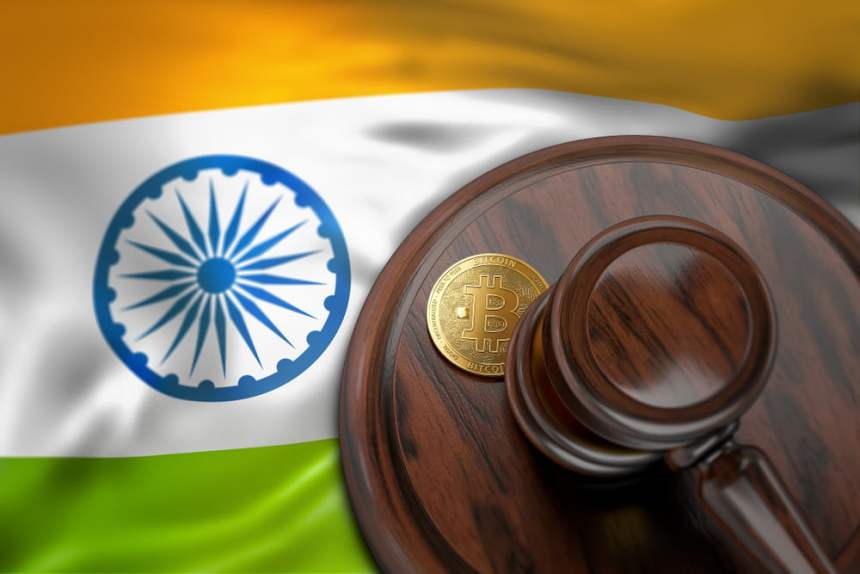Reason to trust

How Our News is Made
Strict editorial policy that focuses on accuracy, relevance, and impartiality
Ad discliamer
Morbi pretium leo et nisl aliquam mollis. Quisque arcu lorem, ultricies quis pellentesque nec, ullamcorper eu odio.
The Reserve Bank of India (RBI) did not correctly respond to the presentation that could have removed the necessity of banning bitcoin trading in the country, found the apex court.
The Supreme Court of India noted in a hearing today that the central bank forwarded the presentation to the government. But what it should have done is provide the exchanges with a detailed, point-by-point response. Judge Rohinton Fali Nariman ordered the RBI to respond to the same presentation in two weeks, shifting the next hearing date to September 25, 2019.
“After hearing arguments we are of the view that detailed representations by exchanges purusant to this court’s order 17.05.2018, have not been answered point by point, therefore RBI to reply them with in 2 weeks. SG to furnish various docs within 1 week,” said Judge Nariman, as confirmed by Crypto Kanoon, an India-based cryptocurrency news source, which was reporting the hearing live via Twitter feeds.
Case takes the most unlredictable turn. Justice Nariman directs that RBI must respond to the representation in the manner appropriate.
Offers to defer the case for 2 weeks as part heard, let the answer come on reconsideration of banking ban by RBI.
RBI has agreed.
— KoinX (@getkoinx) August 21, 2019
Bitcoin Ban Unconstitutional?
The decision came on the third day of an ongoing courtroom battle between RBI and the Internet and Mobile Association of India (IAMAI). The two have been in a lockdown ever since the former barred banks from dealing with firms associated with cryptocurrencies. The move hurt an otherwise-booming bitcoin exchange industry wrong, forcing many leading players to either shut down shops or migrate to more crypto-friendly destinations.
IAMAI questioned the constitutional authority of RBI in imposing the bitcoin prohibition. The argument was reflecting in the court session today, as the central bank’s legal counsel explained that specific provisions allowed RBI to take necessary actions whenever it believes the country’s monetary system is at risk.
“Counsel refers to Section 10 (2) of PSS Act which provides power to RBI to issue guidelines in reference of any payment system,” reported Crypto Kanoon. “Also refers to Section 18 of the PSS Act emphasizing that RBI has power to issue policy in order to manage or operate its payment system and in public interest etc. Points out that RBI has wide powers to regulate its entities is there is a threat to the payment system.”
Government Didn’t Suggest a Bitcoin Ban
While Judge Nariman agreed that RBI is an expert body which took its decision after studying bitcoin thoroughly, the real argument is whether they had the power to legislate the cryptocurrency ban. RBI chose to ban bitcoin after claiming that they had empirical data against the cryptocurrency, which “satisfied” them.
IAMAI’s counsel argued that RBI never had any data to back their ban. Also, the satisfaction of one federal body cannot become a benchmark for the satisfaction of every federal organization. RBI cannot ban bitcoin based on the decision taken by others, the counsel added while referring to the recommendation of an interministerial government to ban bitcoin.
“Reading out Ministry of Finances advisory. Which says that two things raise concern. 1. its use as a payment system 2. its use in illicit activities. So the Govt. has also not advocated about the complete ban. it only said that vices should be eradicated/ regulated,” reported Crypto Kanoon.
Judge Nariman took notice of the argument and angrily asked the RBI to become more responsive to the possibility of regulating bitcoin. He asked the central bank to respond to each and every point raised by the IAMAI’s counsel.
Mr. Sood reads out the suggestions given to RBI by exchanges. That Money laundering Act can be made applicable to exchanges as intermediaries making them responsible for reporting directly. or enjoining on banks to make additional requirements for exchanges.
— KoinX (@getkoinx) August 21, 2019

















